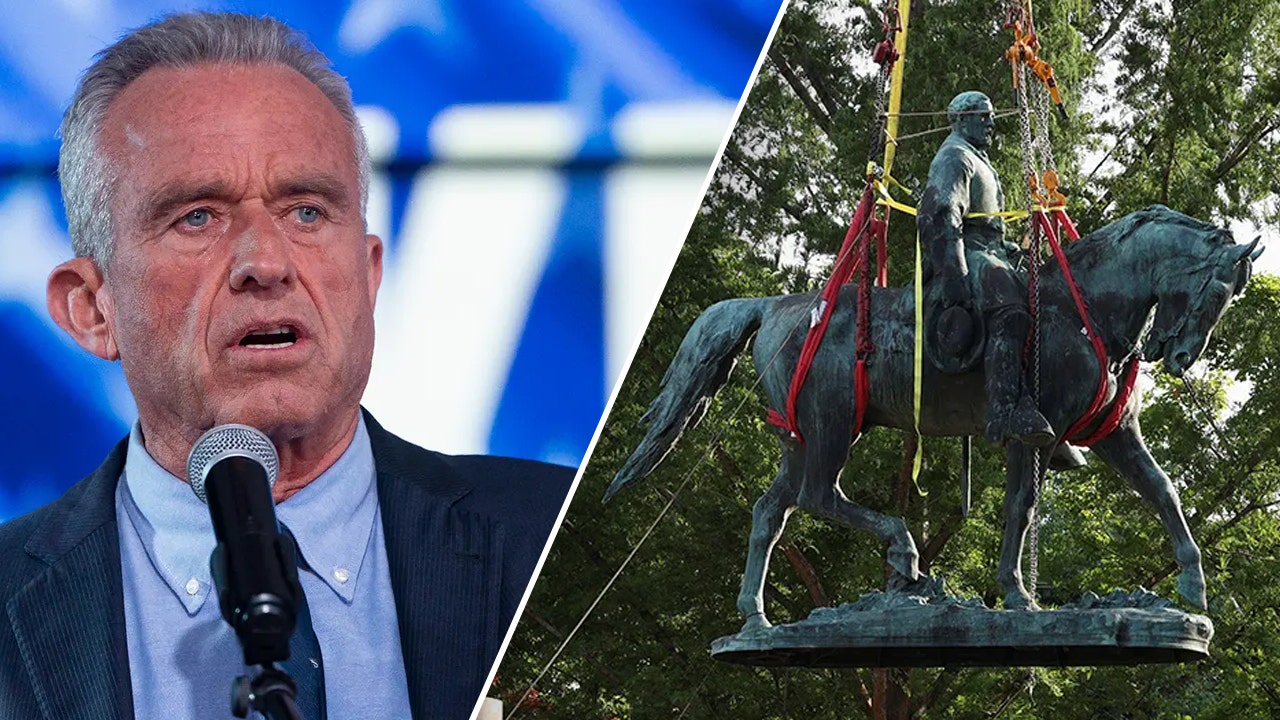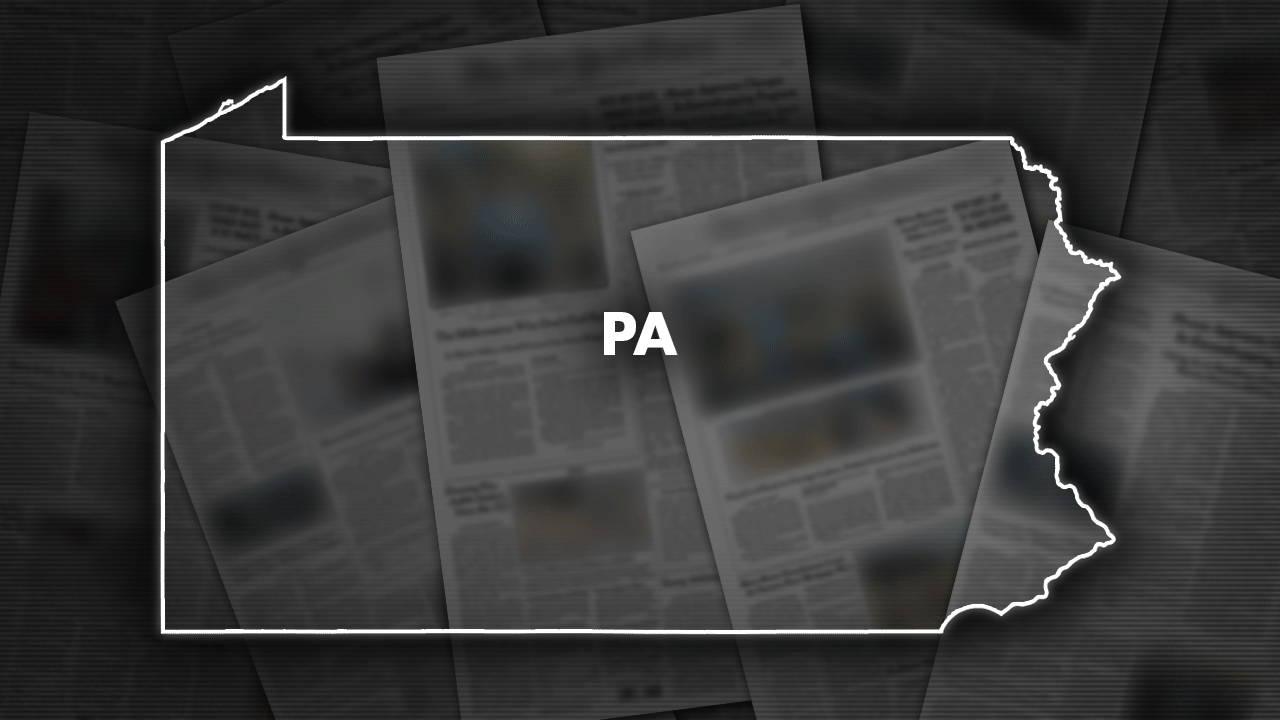The Republican-controlled Wisconsin state legislature has voted to prevent the administration of Gov. Tony Evers, a Democrat, from requiring that seventh-graders be vaccinated against meningitis and to make it easier for parents to secure exemptions from a current chicken-pox immunization mandate, the Associated Press reported. The Advisory Council on Immunization Practices, an advisory body to the Centers for Disease Control and Prevention, has recommended since 2005 that students receive meningitis vaccines, though the brain and spinal-cord disease, which can also cause blood infections, is rare in the U.S., despite occasional outbreaks, often on college campuses and in the military. The Wisconsin vote this week saw all Democrats opposed to halting the vaccine requirement and all Republicans in favor, the AP reported.
Wisconsin
Meningitis-vaccine requirement for Wisconsin students blocked by Republican lawmakers

Wisconsin
Weather experts urge safety going into peak tornado season in Wisconsin
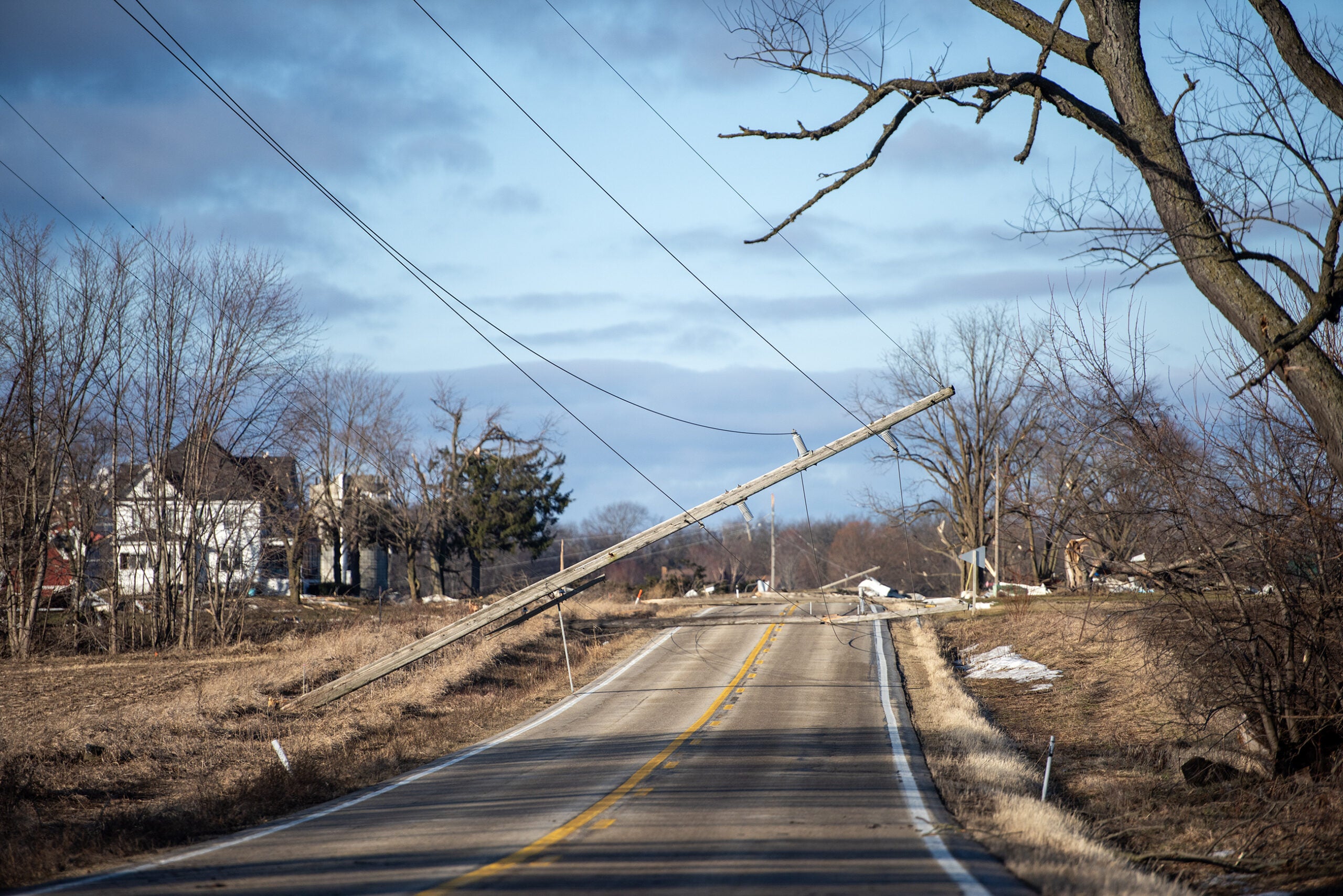
With extreme weather on the rise, experts are urging Wisconsin residents to be prepared going into what’s expected to be the peak season for tornadoes.
According to the National Weather Service, there have been around 20 confirmed tornadoes in Wisconsin this year as of Tuesday. That includes three tornados in Rock and Jefferson counties Sunday evening, two tornadoes in the villages of Edgar and Unity last week and the first reported tornadoes ever recorded during the month of February in Wisconsin.
“We’ve had multiple not only tornado warnings, but confirmed tornadoes, especially in southern Wisconsin — that seems to be the area that’s certainly been hit the hardest,” said Mark McGinnis, a certified consulting meteorologist.
Stay informed on the latest news
Sign up for WPR’s email newsletter.
This spring has seen a series of devastating tornadoes in the Midwest and south. Over Memorial Day weekend, at least 21 people died in tornadoes in Arkansas, Texas, Kentucky and Oklahoma.
Wisconsin averages 23 tornadoes a year, according to ReadyWisconsin. Marcia Cronce, a meteorologist with the National Weather Service’s Milwaukee/Sullivan office, said it’s still too soon to predict if Wisconsin will hit that number this year, but she didn’t rule it out.
“It’s still early in the summer. Our peak time for tornadoes in Wisconsin is June,” Cronce said.
Tornado activity has shifted away from the Great Plains, or “Tornado Alley,” toward the Midwest and Southeast, according to an April study.
Andrew Beckett, a spokesperson for Wisconsin Emergency Management, said now is the time for residents to be prepared and have safety plans going into the summer months.
“Weather in Wisconsin can be unpredictable, and the past few months have really shown that,” Beckett said.
“It really just shows that people need to be prepared, that they need to be aware of what the weather could be producing on any given day and they need to be ready to take action in order to protect themselves,” he added.
Wisconsin has seen warm and wet weather in recent months. The state officially had the warmest winter on record in 130 years. The latest climate outlook shows parts of Wisconsin are likely to be warmer this summer as well.
“We’re warmer and wetter than normal. And now that we’re into the warmer months of the seasons, we’re moving into summer, when you’re warmer and wetter. It’s much more conducive for thunderstorms,” McGinnis said.
Tornadoes can form when warm, moist air toward the ground mixes with a downdraft of cooler air, creating an unstable spinning vortex.
The Center for Disaster Philanthropy has called this year the most active tornado season since 2017. There have been just over 700 confirmed tornadoes in 2024 so far, according to preliminary statistics. The center said that’s due to “unusually warm temperatures” that have caused “storm systems which have frequently spun off tornadoes.”
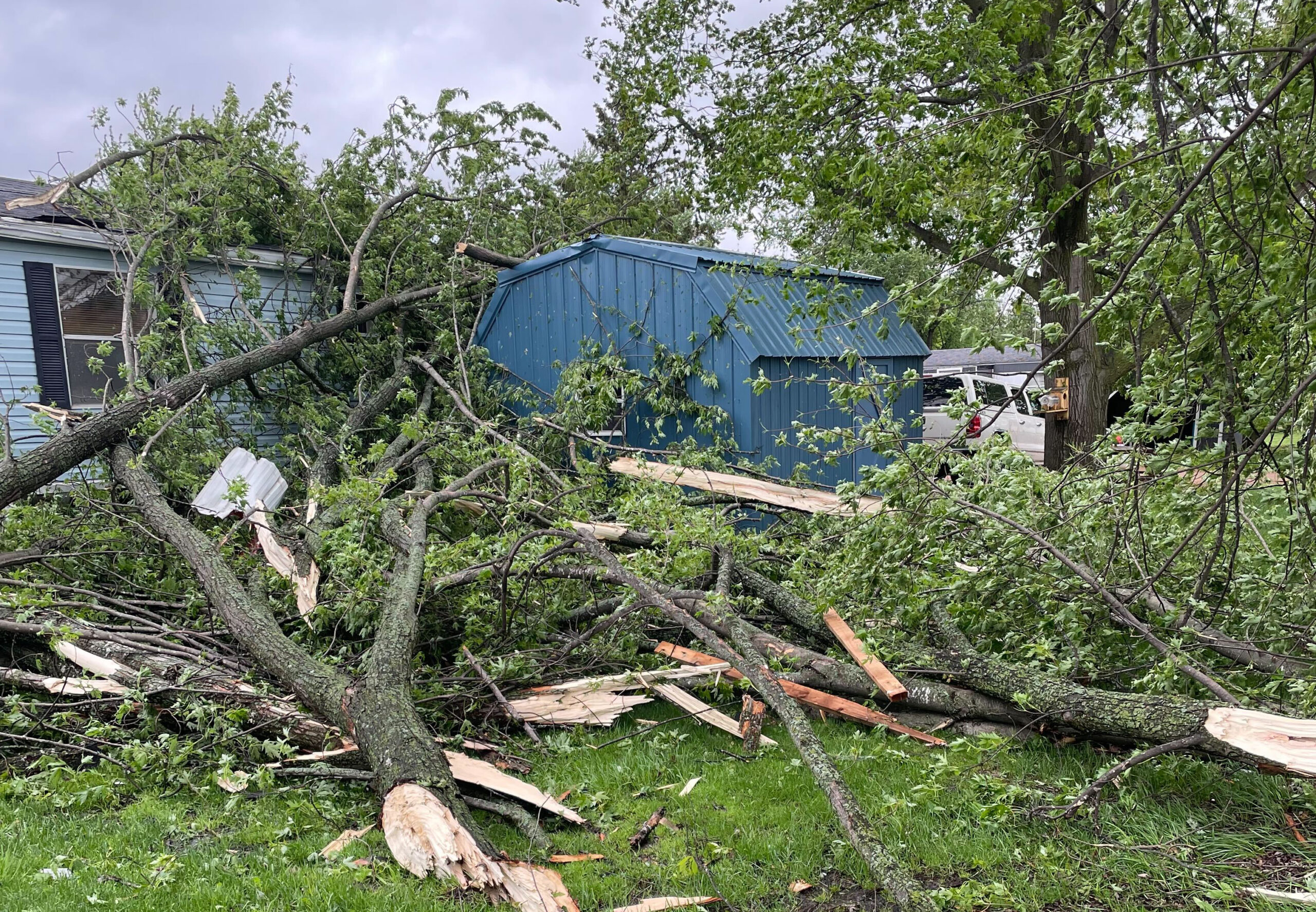
“We’re not even in the peak severe weather season yet,” Kurt Kotenberg, the warning coordination meteorologist of the National Weather Service in Green Bay, said after surveying damage from the Edgar and Unity storms.
“If you haven’t made a plan to make sure you have a way to receive warning information and a place to shelter if we start issuing tornado warnings or severe thunderstorm warnings, this is definitely a reminder to start making those plans and being ready,” Kotenberg said. “We have several more months ahead of us where we could see severe weather and tornadoes here in Wisconsin.”
Beckett said “planning is key” in order for people to stay safe in extreme weather. That includes making sure you can received weather alerts on your phone or a radio that sends out National Oceanic and Atmospheric Administration alerts.
He also said people should check the weather every day through local media and keep an eye out for storms.
“Having that information is really critical to ensuring that you have an expectation of what the day is going to offer and what you might need to do in order to stay safe,” Beckett said.
Wisconsin Public Radio, © Copyright 2024, Board of Regents of the University of Wisconsin System and Wisconsin Educational Communications Board.
Wisconsin
4 Wisconsin teenagers killed in early morning truck crash
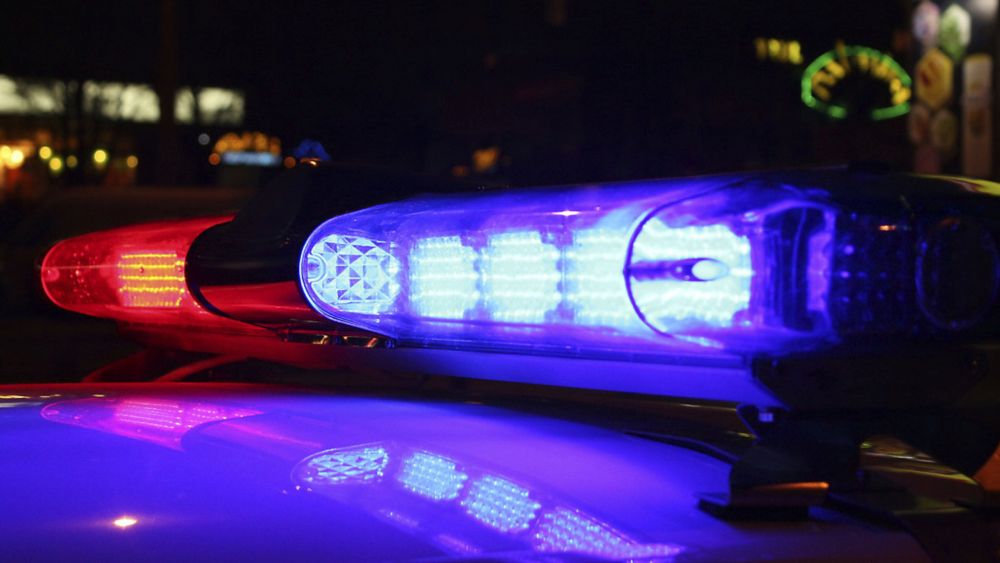
MADISON, Wis. (AP) — Four teenagers were killed and another was seriously injured when their truck collided with a semitrailer in rural south-central Wisconsin early Monday.
The Dodge County Sheriff’s Office said in a news release that deputies responded to the crash just outside Columbus around 4 a.m.
An initial investigation shows the teenagers were traveling north in a pickup truck when they ran a stop sign and hit an eastbound semitrailer.
The pickup’s driver, a 19-year-old Sun Prairie man, was pronounced dead at the scene. So were a 17-year-old male passenger from Sun Prairie and a 16-year-old male passenger from Madison.
An 18-year-old female passenger from Madison died later at the University of Wisconsin Hospital in Madison. Another 18-year-old female passenger from Madison was taken to the same hospital with life-threatening injuries.
The semitrailer driver, a 57-year-old man from La Farge, was taken to a hospital in Columbus with minor injuries.
The sheriff’s office has not identified anyone involved in the crash, which remains under investigation.
Columbus, a city of about 4,000 people, lies about 27 miles (45 kilometers) northeast of Madison, the state capital.
Wisconsin
Wisconsin judge to hear union lawsuit against collective bargaining restrictions

MADISON, Wis. — A law that drew massive protests and made Wisconsin the center of a national fight over union rights is back in court on Tuesday, facing a new challenge from teachers and public workers brought after the state’s Supreme Court flipped to liberal control.
The 2011 law, known as Act 10, imposed a near-total ban on collective bargaining for most public employees. It has withstood numerous legal challenges and was the signature legislative achievement of former Republican Gov. Scott Walker, who used it to mount a presidential run.
The law catapulted Walker onto the national stage, sparked an unsuccessful recall campaign, and laid the groundwork for his failed 2016 presidential bid. It also led to a dramatic decrease in union membership across the state.
If the latest lawsuit succeeds, all public sector workers who lost their collective bargaining power would have it restored. They would be treated the same as the police, firefighter and other public safety unions who remain exempt.
The law is “fundamentally unequal,” irrational and unconstitutional, unions argue in court filings.
The Republican-controlled Legislature is asking for the case to be dismissed, arguing that “it has long been settled that Act 10 passes constitutional muster.” Dane County Circuit Judge Jakob Frost scheduled arguments on the motion to dismiss for Tuesday.
The Legislature also argues that the unions waited too long to bring the challenge, noting that the law has been in effect for nearly 13 years and survived state and federal court challenges.
Mary Kay Baum joins hundreds of labor union members at a rally to protest the collective bargaining measures of Wisconsin Governor Scott Walker’s administration at the Wisconsin State Capitol Building in Madison, Wis., Aug. 25, 2011. A Wisconsin judge is scheduled to hear arguments Tuesday, May 28, 2024, in a case brought by unions representing teachers and public workers who are trying to end the state’s near-total ban on collective bargaining for most public employees. Credit: AP/John Hart
The lawsuit says that exemptions for firefighters and other public safety workers are unconstitutional, similar to arguments made in an earlier case brought by teachers and Milwaukee public workers that was rejected in 2014 by the state Supreme Court.
The only change since the Wisconsin Supreme Court’s 2014 ruling is the makeup of the court, attorneys for the Legislature said in court filings.
“And that is certainly no reason for any court in Wisconsin to depart from that precedent,” the Legislature argues.
The court is controlled 4-3 by liberals, a flip from when it upheld the law a decade ago under 5-2 conservative control.
The state Department of Justice, overseen by Democratic Attorney General Josh Kaul, is representing state agencies named as defendants and also supporting dismissal of the case.
The Act 10 law effectively ended collective bargaining for most public unions by allowing them to bargain solely over base wage increases no greater than inflation. It also disallowed the automatic withdrawal of union dues, required annual recertification votes for unions, and forced public workers to pay more for health insurance and retirement benefits.
Teachers and other public workers argue in their lawsuit that Act 10 violates the Wisconsin Constitution’s equal protection guarantee and exempts groups that also endorsed Walker in the 2010 gubernatorial election, while those subject to the restrictions did not.
But the Legislature and state agency defendants all say there were rational, legal reasons for differentiating the groups of employees.
A federal appeals court in 2013 also rejected claims that the law violated the equal protection guarantee in the U.S. Constitution, saying the state was free to draw a line between public safety and other unions, and the following year again ruled that the law was constitutional.
And in 2019, a federal judge rejected a lawsuit brought by two arms of the International Union of Operating Engineers that argued the law violates free speech and free association under the First Amendment.
The defendants cite those previous rulings in arguing for dismissal. The unions argue that their case raises different legal issues than those past lawsuits that failed.
-

 Movie Reviews1 week ago
Movie Reviews1 week ago‘The Substance’ Review: An Excellent Demi Moore Helps Sustain Coralie Fargeat’s Stylish but Redundant Body Horror
-

 Movie Reviews1 week ago
Movie Reviews1 week ago‘Rumours’ Review: Cate Blanchett and Alicia Vikander Play Clueless World Leaders in Guy Maddin’s Very Funny, Truly Silly Dark Comedy
-

 Culture1 week ago
Culture1 week agoFrom Dairy Daddies to Trash Pandas: How branding creates fans for lower-league baseball teams
-

 News1 week ago
News1 week agoVideo: A Student Protester Facing Disciplinary Action Has ‘No Regrets’
-

 Movie Reviews1 week ago
Movie Reviews1 week ago‘Blue Sun Palace’ Review: An Intimate, Affecting and Dogma-Free Portrait of Chinese Immigrants in Working-Class New York
-

 World1 week ago
World1 week agoPanic in Bishkek: Why were Pakistani students attacked in Kyrgyzstan?
-

 Politics1 week ago
Politics1 week agoAnti-Israel agitators interrupt Blinken Senate testimony, hauled out by Capitol police
-

 Politics7 days ago
Politics7 days agoMichael Cohen swore he had nothing derogatory on Trump, his ex-lawyer says – another lie – as testimony ends















